

Scientific evidence finds that if you store your winter wardrobe under your bed or in the back of the closet, you'll be able to manifest the sunshine and warm weather.
Well, we actually don't have scientific proof, but we do have tips from organization pros and our 30-day decluttering challenge to help make room in your closet for all those spring dresses. Keep chunky knits out of sight, out of mind!
How to store your winter wardrobe properly
"Storing away bulky winter clothing is a chore, but it’s one I look forward to each year because it signifies that my favorite season has arrived," says Susannah Munson, interior design leader at IKEA US.
Let's embrace that positivity and get to it, shall we?
1. Size up your space
Before you start rearranging clothes, assess the amount of space you're juggling and use every inch to its maximum potential. If you want to be really efficient, take a good look at your garments and see what's truly worth the real estate in your dresser and closet. (Perhaps now's the time to finesse that capsule wardrobe you've been thinking about.)
"If you’re tight on space, think of three to five ways you can wear something. Clothes may need to earn a place in your closet," says Jean Prominski, a certified professional organizer and the founder of Seattle Sparkle.
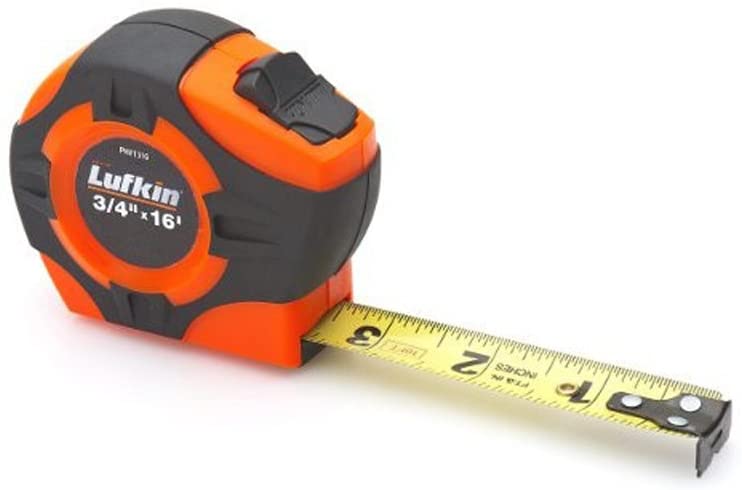
A 16-foot measuring tape with a pivot lock to secure your spot.

A 10-foot measuring tape with a pivot lock.

A small measuring tape that extends up to 3 feet and includes a key ring for easy access.
2. Keep it clean
Sure, you're busy figuring out how to clean a washing machine with vinegar and keeping your laundry room essentials well-stocked, but don't forget about the clothes in the process! You might not be wearing your favorite wool turtleneck anytime soon, but it could benefit from a quick scrub before it goes into hibernation.
"Clean or dry-clean all clothes before storing them away," Taisha Joseph, founder of Simply Sobelle recommends. "Make sure all clothing is dry before you store them — you want to prevent all mold and mildew."
3. Find your favorites
We'll admit, it's not always easy to part ways with your favorite sweatshirt or blazer, so keep the non-negotiable winter items in your summer rotation and put the rest in containers.
"I recommend keeping a few sweaters in rotation all year so that you can always get one when you need one," Prominski says. "But if you want access to your whole winter wardrobe, make sure you know what is in each container."
And the best way to keep track of said containers? Don't send them off to Neverland.
"The best way to make sure your off-season clothing is accessible all year round is to find ways to store it in the same room that you get dressed in, rather than moving it to a basement, attic or other storage area," Munson adds.
(Psst: these organization products will help get the job done!)
4. Invest in vacuum bags
One thing all professional organizers agree on? The value of the vacuum bag.
"Vacuum-sealed bags are always a must, they will automatically create more space to store even more items in the adequate container," says Vanessa Garcia at Taskrabbit.
But take things a step further before piling in the cardigans and scarves.
"I wash and fold all clothes, then place them in vacuum-sealed bags," Joseph notes. "Label each bag listed with the contents. You can keep them in a bin or store them under the bed for easy access."
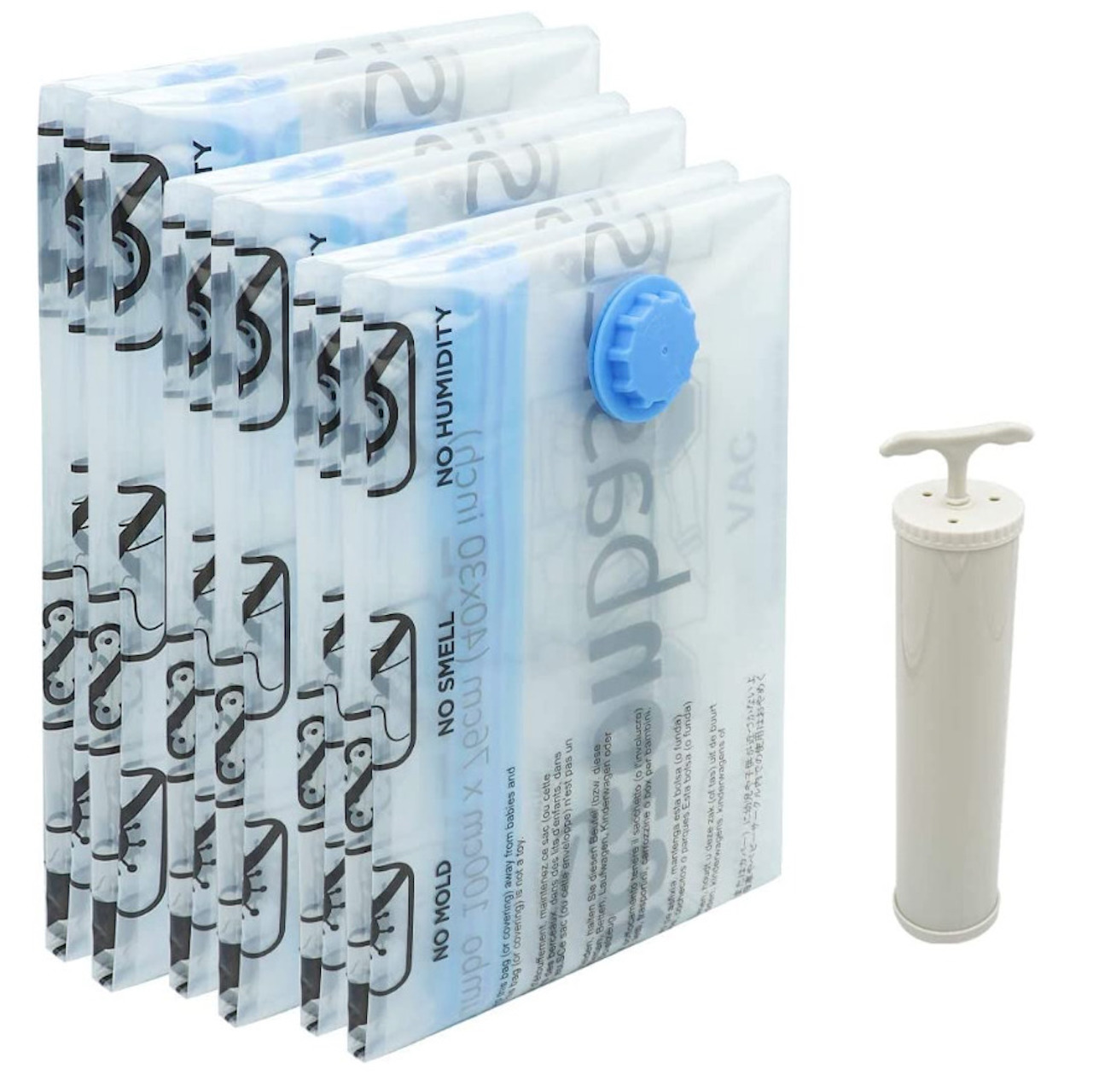
A six pack of medium-sized vacuum storage compression bags with a hand pump. Various sizes and styles available.
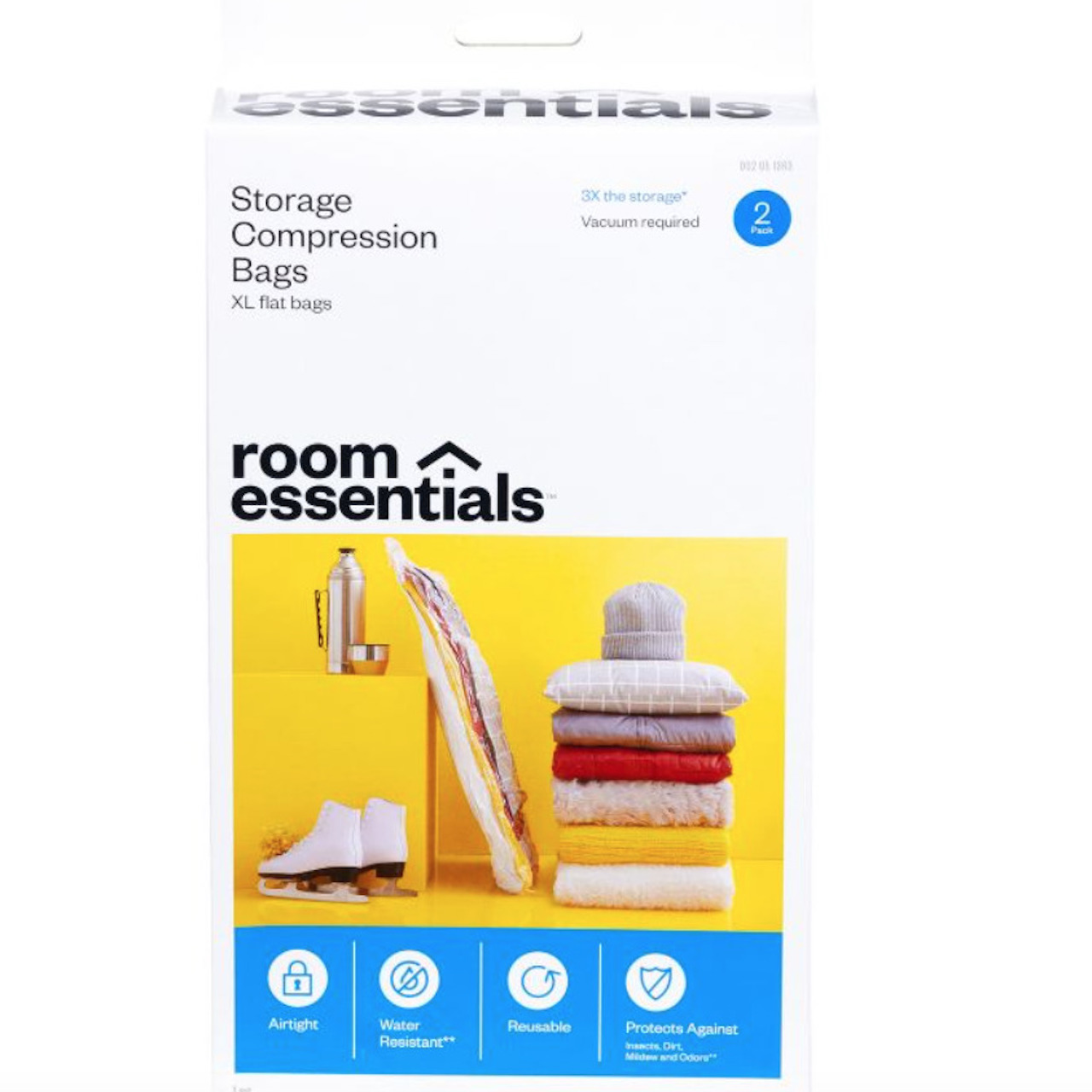
Two extra-large, airtight, water-resistant bags for clothing storage. (40"L x 27"W)
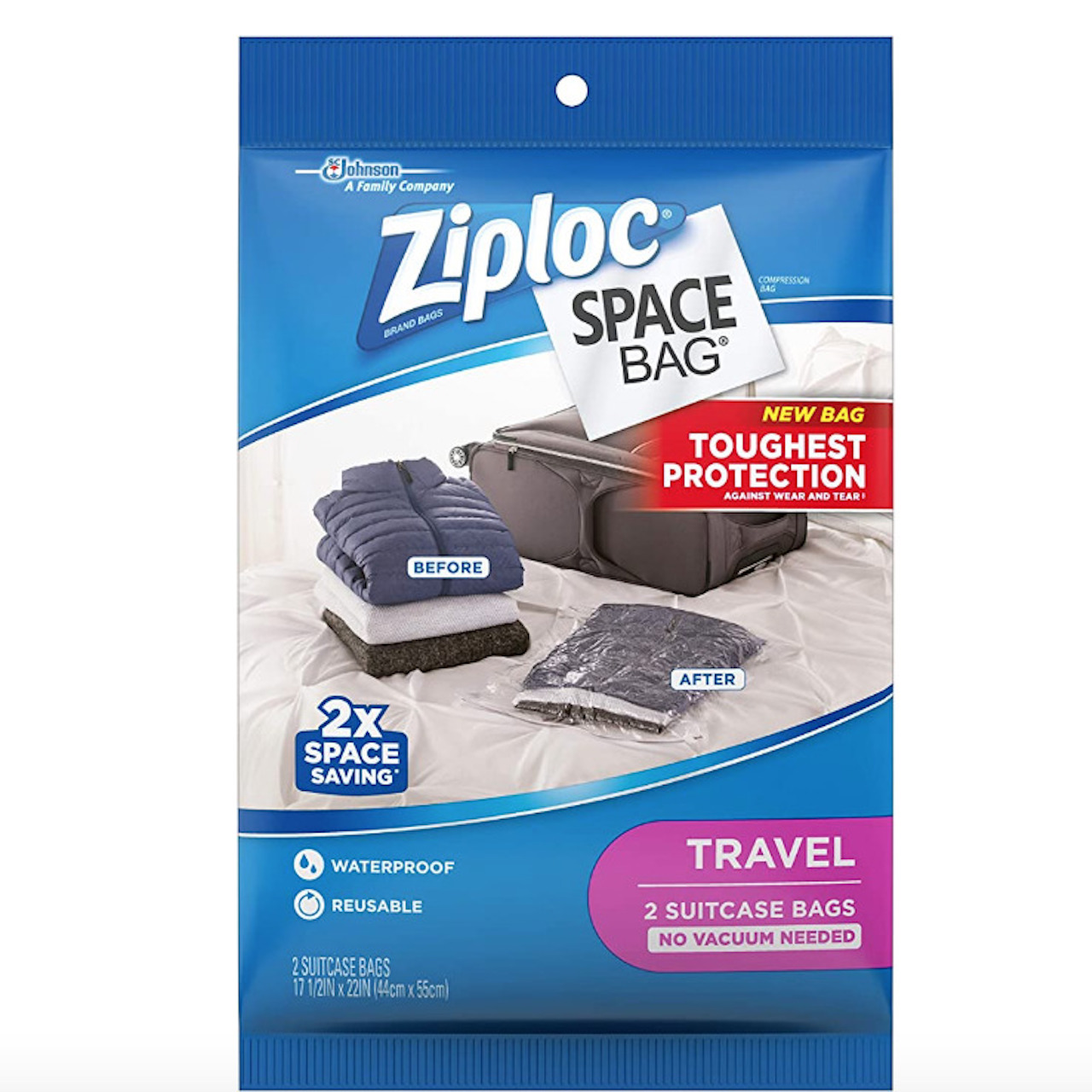
Airtight, waterproof and reusable vacuum-sealer storage bags that can reduce volume up to 75%. Various sizes available.
5. Remember to look up...
Remember when you started styling that nook in your living room? It was important not to disregard vertical space, and the same goes for organizing wardrobes.
"When you live in a small space, finding solutions for seasonal clothing storage can be tricky, but not impossible. If you think about the volume of space in a room, the most overlooked potential lies in utilizing the full height of a room, all the way to the ceiling," Munson says. "My advice for small space storage is don’t forget to look up."
Likewise, Joseph is in big favor of freestanding clothing racks — especially for those studios that don't come with closets.

An open-solution storage option (49 1/8x21 5/8x85") with bamboo shelves.

Perfect for shopaholics, this multipurpose storage rack (76" L x 15.7" W x 75.6" H) has a load capacity of up to 900 lbs.
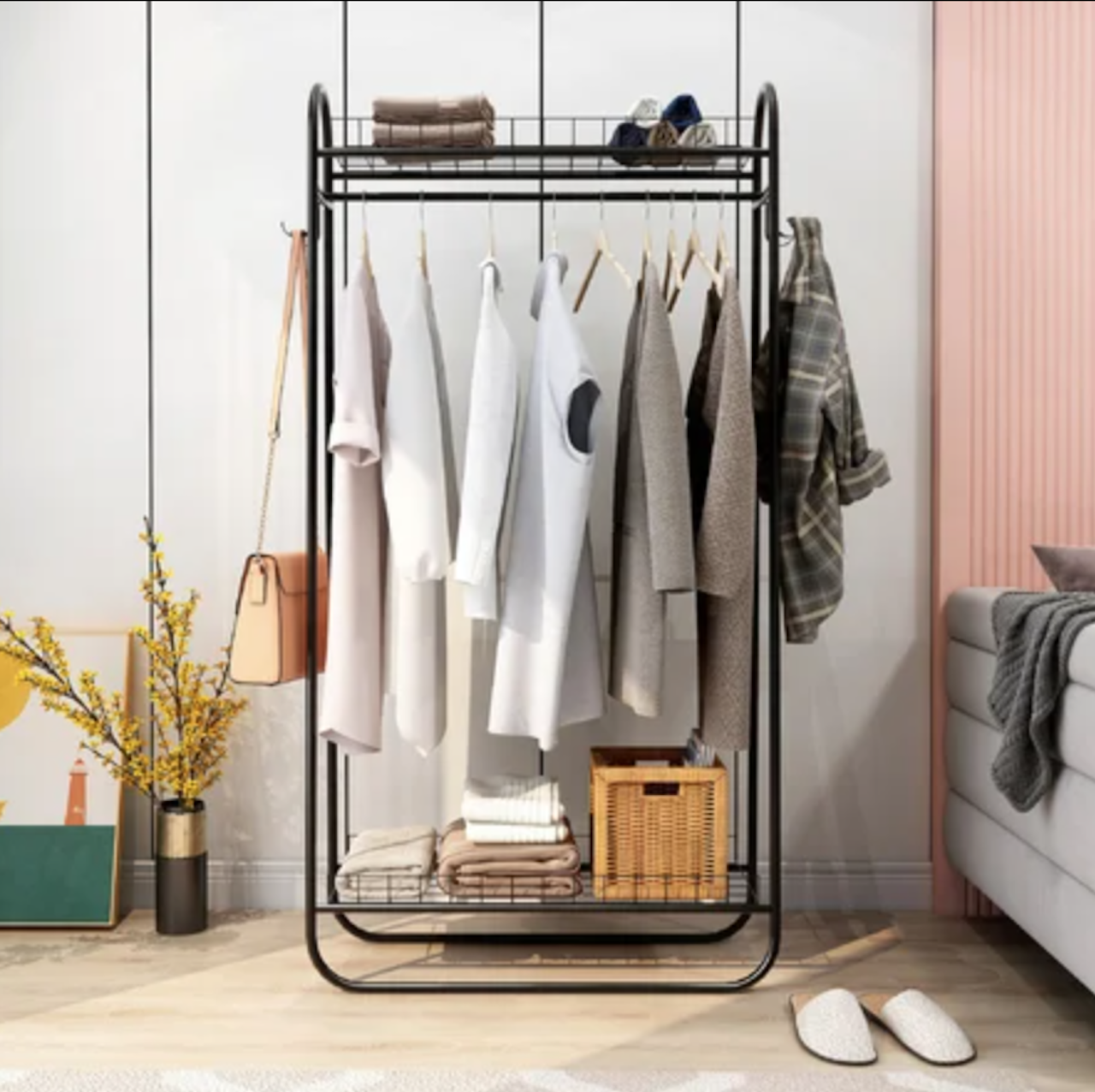
A metal freestanding clothing rack ( 32.9") with a matte finish and two exposed shelves.
6 ...Or under
"Under-bed boxes or drawers can also be really handy for storing out of season clothes," Prominski notes. "Plastic boxes work well for storing these clothes out of the way. Fold clothes neatly to make best use of the space (and to mitigate wrinkles)."
Likewise, Garcia suggests using a hard case so that the shape doesn't get warped over time.
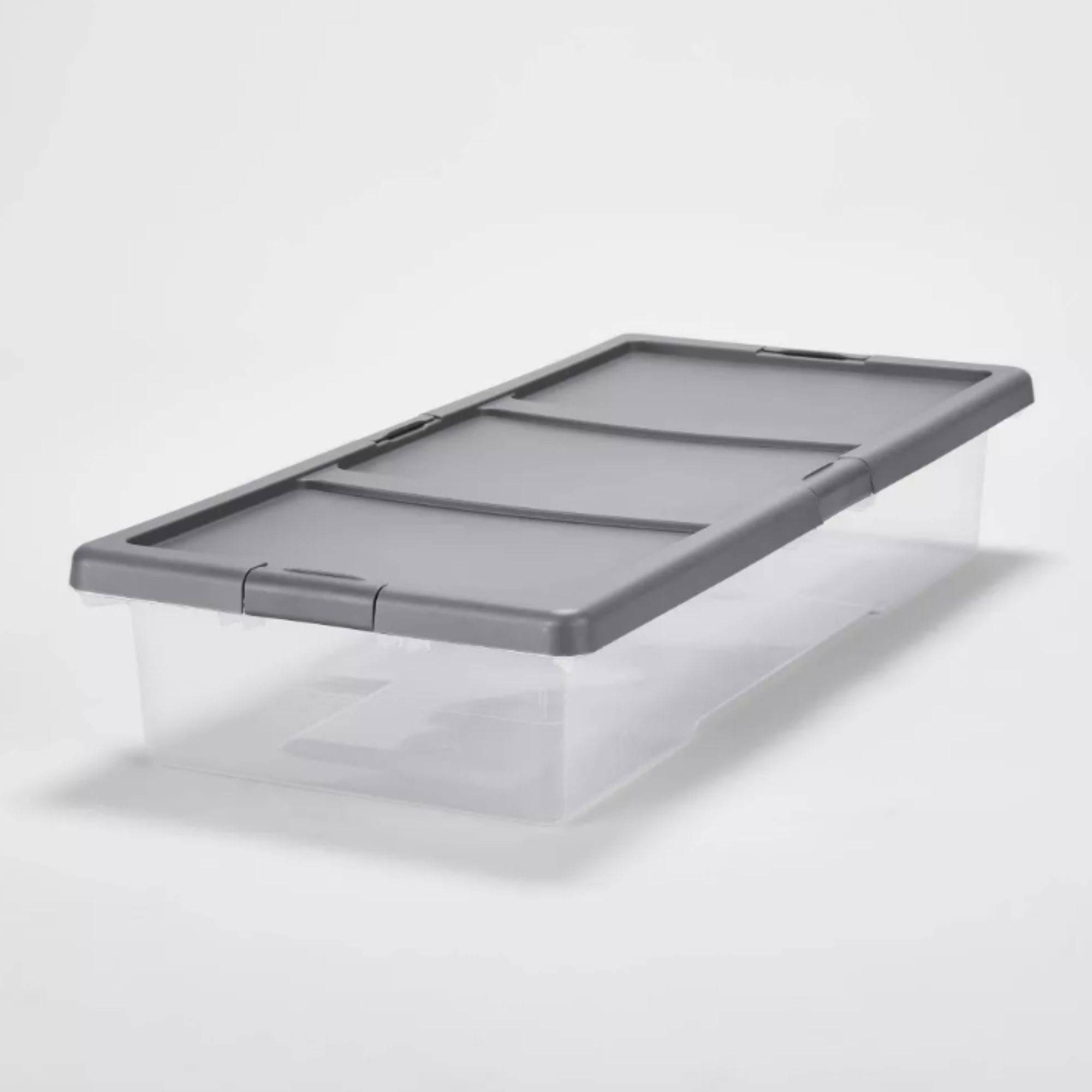
A clear, plastic storage box that measures 35.87" (L), 6.63" (H) x 16.65" (W) and includes a lid.
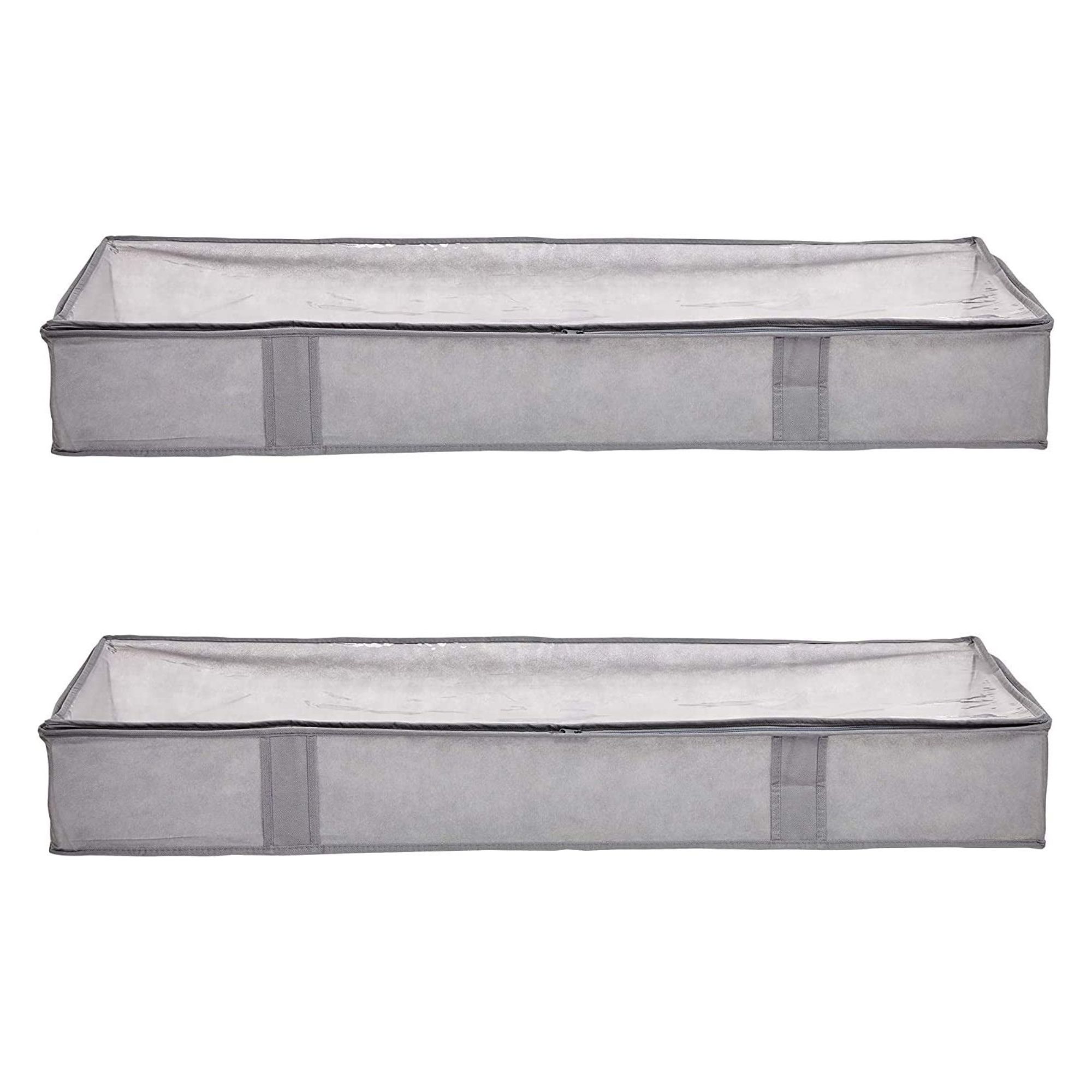
A two-pack of 18" x 42" x 6" vinyl storage containers.
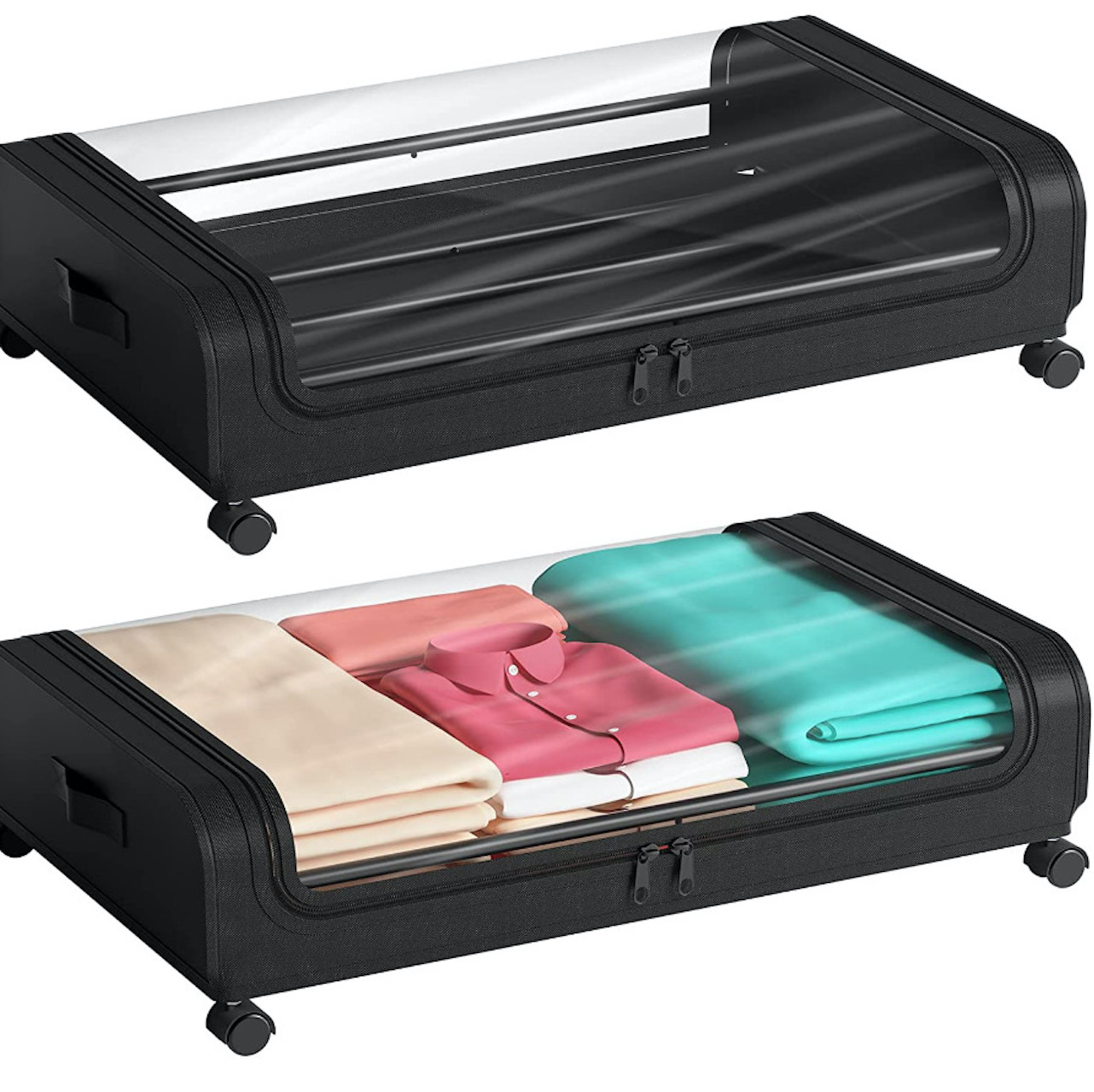
Two rectangular see-through storage containers (15"L x 4.7"W x 4.7"H) with wheels for 360-degree rotation.
7. Accessorize accordingly
To keep things fresh — and pests away — turn to moth balls and the like. You don't want to search for your sweaters come the end of the year to find out that they look like slices of Swiss Cheese.
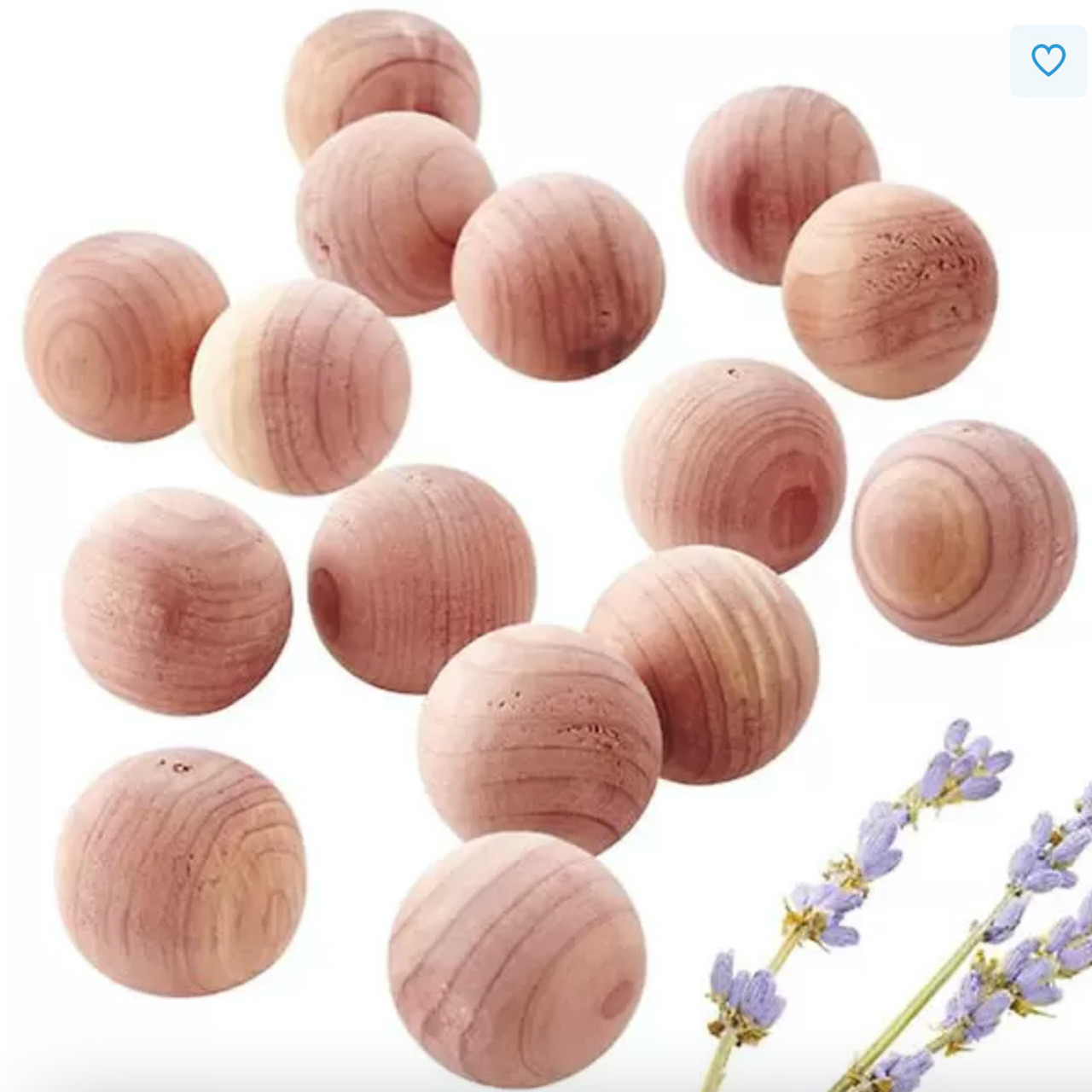
A 24-pack of cedar and lavender balls to keep clothes clean and moths away.
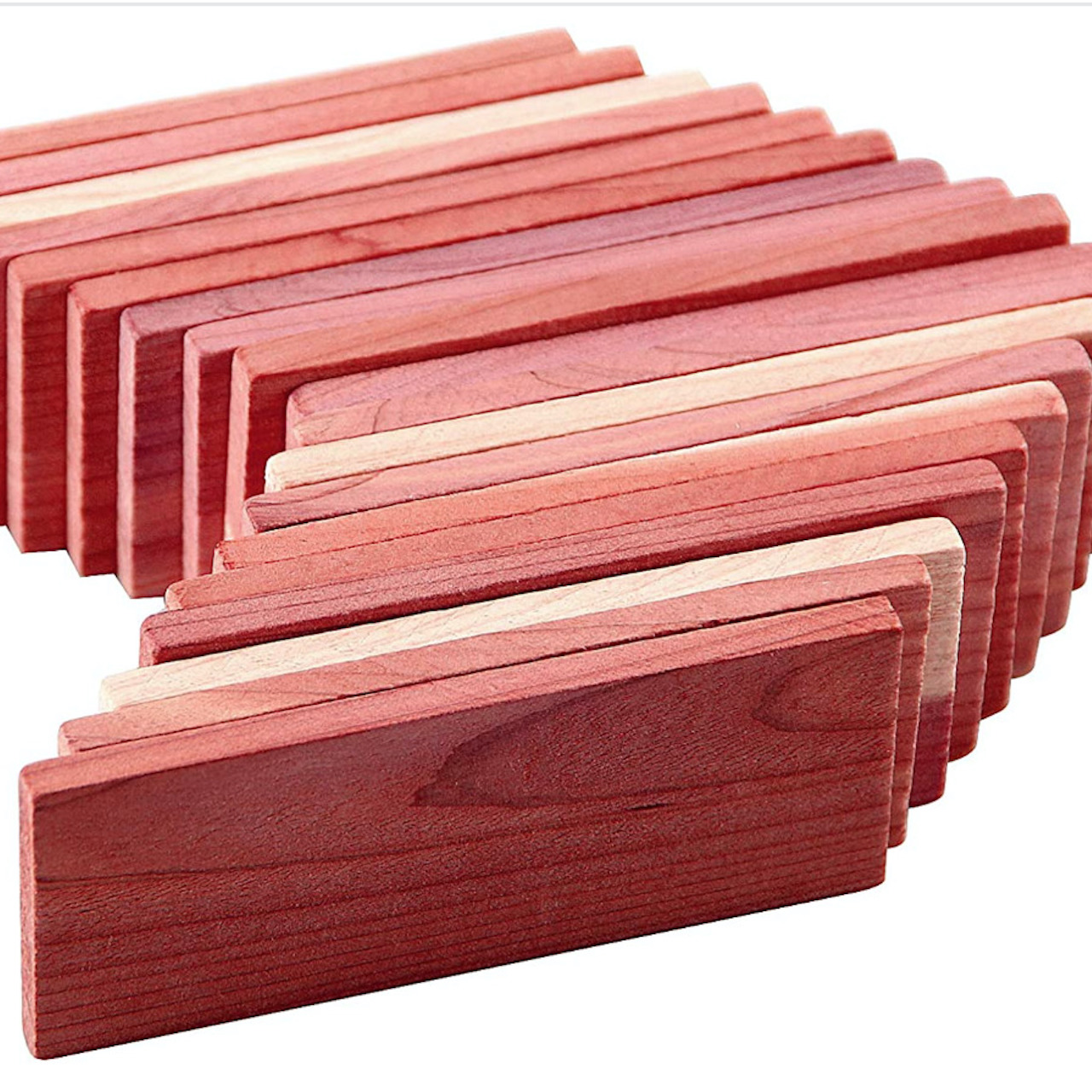
Natural, non-toxic cedar blocks to keep clothes fresh. Either 16 or 11 per package.
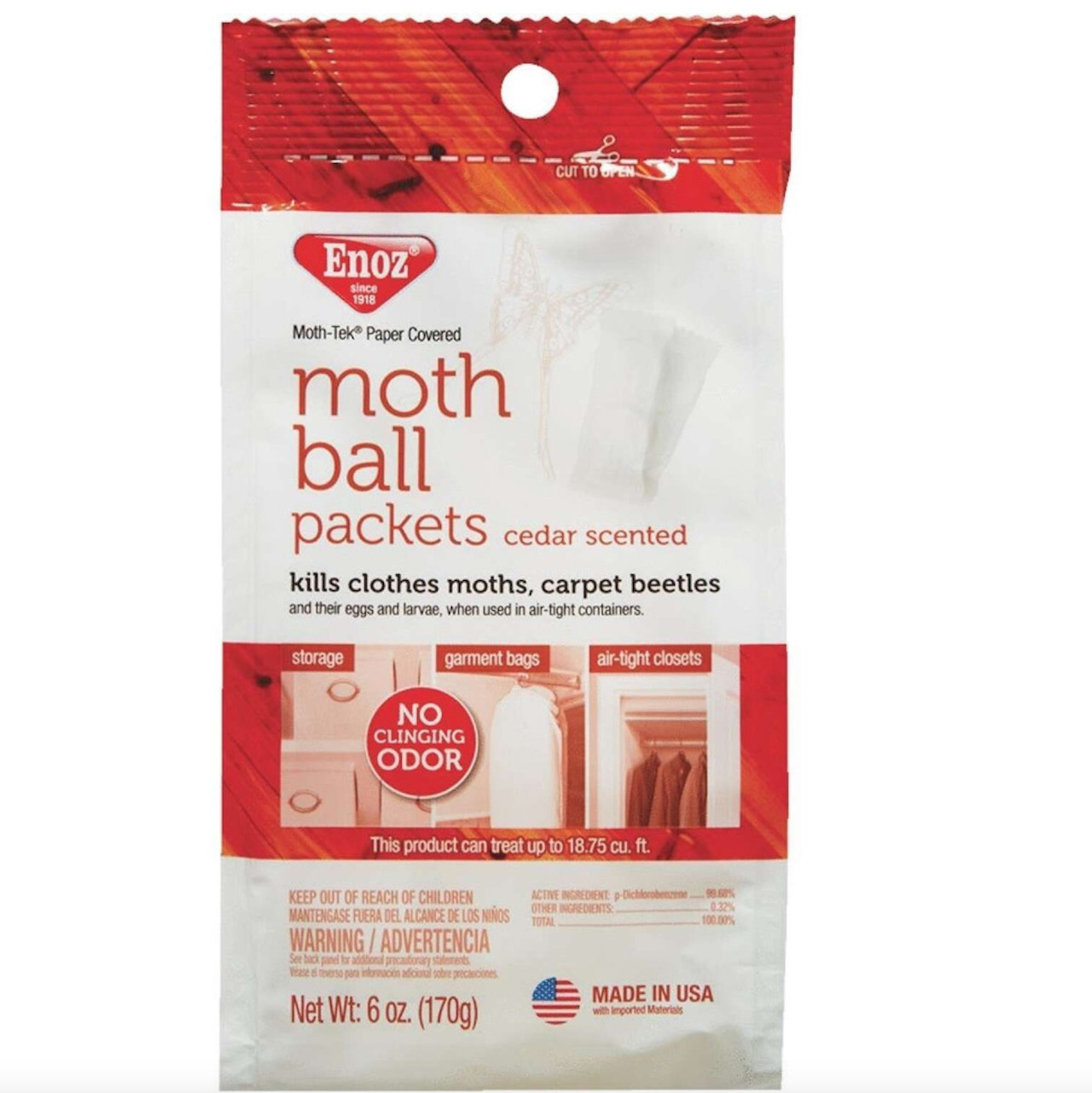
Available in lavender, cedar or linen scents, these packets don't leave messy residue or odors behind.
Join our newsletter
Get small space home decor ideas, celeb inspiration, DIY tips and more, straight to your inbox!

Pleasure to meet you! I'm Danielle, a content editor at Real Homes who loves scoping out interior trends. I've specialized in lifestyle writing and editing for 10 years with a focus on events, food, and books, among other areas. When I'm not working, I'm usually cooking, reading, or searching for a new project for my apartment.